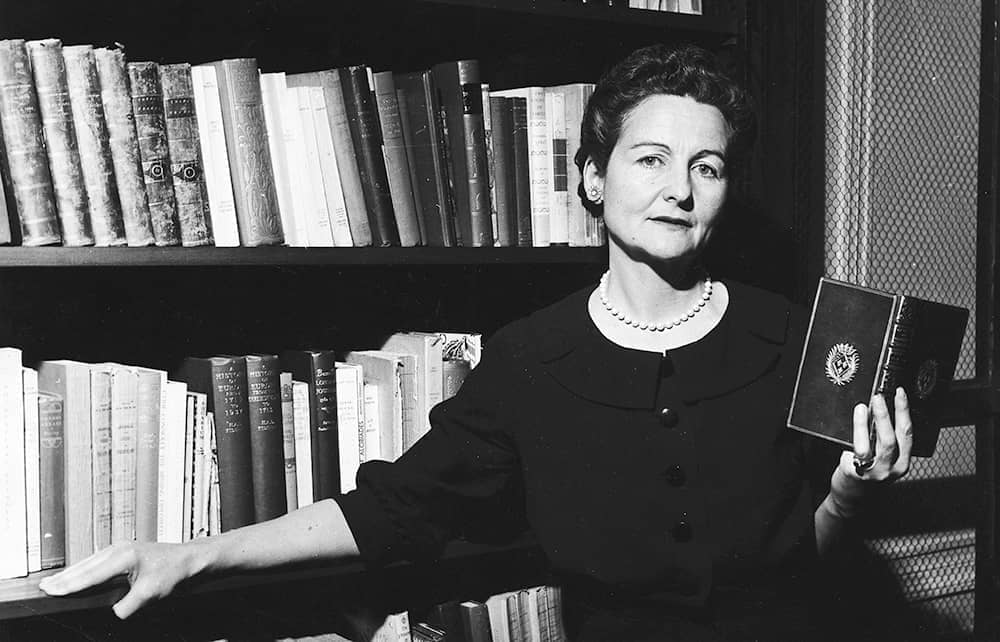It takes chutzpah to tackle a national treasure as jealously loved and gatekept as Nancy Mitford’s The Pursuit of Love. Purists greeted last year’s television adaptation much as cat-owners might welcome a partially eviscerated mouse. I avoided watching, because the Wes Andersonification of my greatest literary succour seemed likely to burst every vein in my eyeballs. Can India Knight pull it off?
The bones remain intact. Beautiful, guileless aristocrat Linda Radlett falls disastrously in love with a rich banker and then a broke radical before finding happiness with an urbane Frenchman. But plot was never really the point. The delight is in the details.
Knight’s are bang on, and there’s joy in spotting them. The Radlett family become rock royalty, exiled in deepest Norfolk. Only two bars of signal in an abandoned pig ark connect the home-schooled siblings and the narrator, cousin Franny (no longer Fanny, understandably), to the outside world. Irascible patriarch Uncle Matthew is a reformed rock star and his notorious Great War entrenching tool a bloodstained Brit award he used to brain a drummer while ‘high on pharmaceutical-grade cocaine’. His violently arbitrary, Nicky Haslam-style hatreds pepper the pages: enoki mushrooms, thin socks or open-mouthed Instagrammers. Linda’s dud husbands are the fleshily handsome son of a Ukip peer (looking ‘like he lives off parma ham and cream, like an old woman’s bloody cat’, Uncle Matthew fulminates) and an Etonian anti-capitalist.
Some tweaks reflect contemporary sensibilities: sea swimming replaces hunting, and most of the characters have jobs: Linda runs a Dalston café, and her one true love, Fabrice, owns chic boutique hotels. Linda’s daughter Moira (deathlessly described by Mitford as a ‘howling orange in a fine black wig’) is gaily abandoned in the original; here she remains a beloved, if semi-detached, family member. By contrast, the radical reimagining of Christian, Linda’s second husband, as a superficially charming literary narcissist is gratuitous, but immensely entertaining. Mitford’s version is not wholly unsympathetic – a man more interested in causes than people; here he is irredeemable. Knight has forensically accurate fun with him: Christian recites ‘protest sonnets’ and lectures everyone about privilege. His literary salon topics include ‘Tony Blair: genocidaire?’ and ‘Deconstructing New Labour fascism: a workshop’.
The Radletts’ isolation means they have their own language and in-jokes. There’s a fine line between charm and emetic smugness in conveying that, but the dialogue has spark and edge enough to stay on the right side. I trusted Knight – whose lifestyle journalism is so seductive she could make me buy house dust – to ace the minutiae, and she does: the food, clothes and interiors are perfect. Linda’s mentor Merlin is here a McQueenesque fashion designer who wears ‘an 18th-century woman’s shirt made out of Belgian lace and… a poisoner’s ring from the 1600s’. Hypochondriac Davey isa perfect present-day cocktail of kombucha, pranic healing and pseudograins, obsessed with his microbiome.
But there’s heart as well as humour: it was, and remains, a sincere romance. If anything, Knight’s version is marginally gentler. Mitford had not a splinter but a full stalactite of ice in the heart. Darling might feel an odd read for neophytes, but Pursuit of Love diehards can rest easy: your blood vessels are safe with this faithful, fiercely funny homage.






Comments